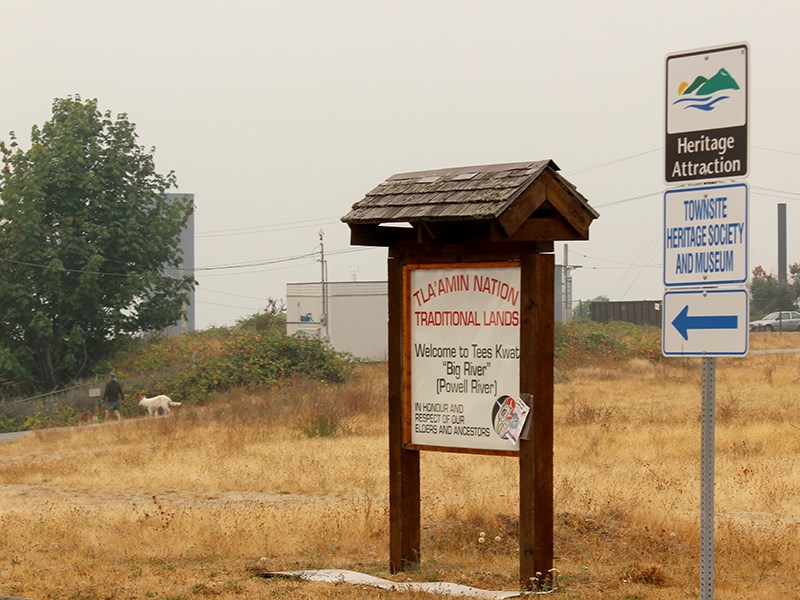It has been known in Townsite as the old hospital lands, but it was once an important village belonging to Tla’amin Nation. Its name is Tees’kwat, or big river, and it is now being returned.
The land transfer to Tla’amin is part of the treaty settlement when the nation became self-governing in 2016.
At City of Powell River regular council on August 16, approval was given to transfer ownership.
“The official documents have not been signed but all of the verbal commitments are happening,” said Tla’amin hegus Clint Williams. “The written piece is happening in the background as we speak.”
The land housed one of the main villages of the Tla’amin people. “The river was right there and the fish,” said Williams. “Our people travelled around communally following resources and used them sustainably. They had a calendar of different events that they just had their internal clocks set to with the seasons and seasonally followed the resources throughout the territory.”
Currently, the nation has no real plans for developing the property, said Williams. “I'm not 100 per cent sure what we'll do with it at this point,” he said. “We need some kind of acknowledgement of the old Tees’kwat village site.”
In 1923, St. Luke’s Hospital was built at the corner of Walnut Street and Arbutus Avenue, where the Kenmar apartment building now stands.
The land transfer was attempted previously in 2003, under Mayor Stewart Alsgard, according to current Mayor Dave Formosa.
Those negotiations occurred the same year the Community Accord was signed between Tla’amin and the city.
“Prior to any of us being on this council, as a gesture of reconciliation, they tried to gift back the old hospital site for the Tla’amin Nation,” said Formosa. “What the city envisioned was a longhouse and first nations-themed park.”
At the time, Tla’amin didn’t share the city’s vision and it remained undeveloped.
Although part of the land transfer, Tla’amin will continue the commitment to allow the Alano Club to remain at its current location on Arbutus.
The transfer is expected to be completed by August 31.



